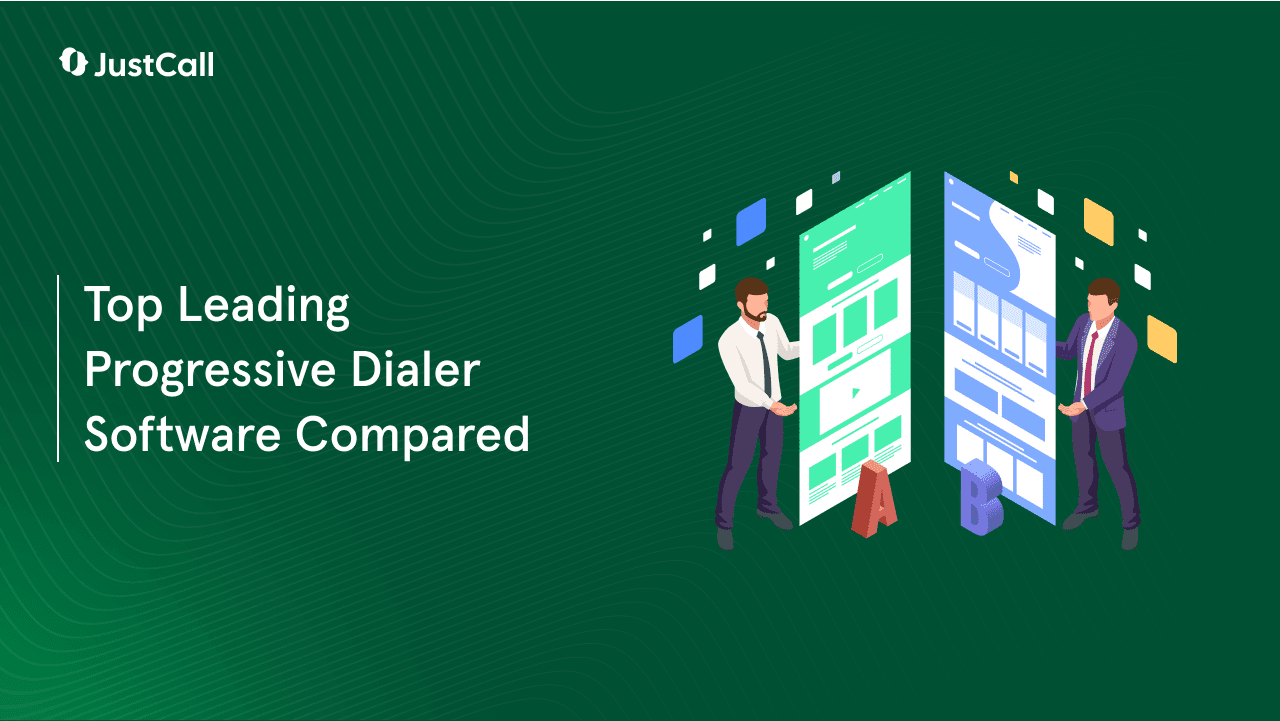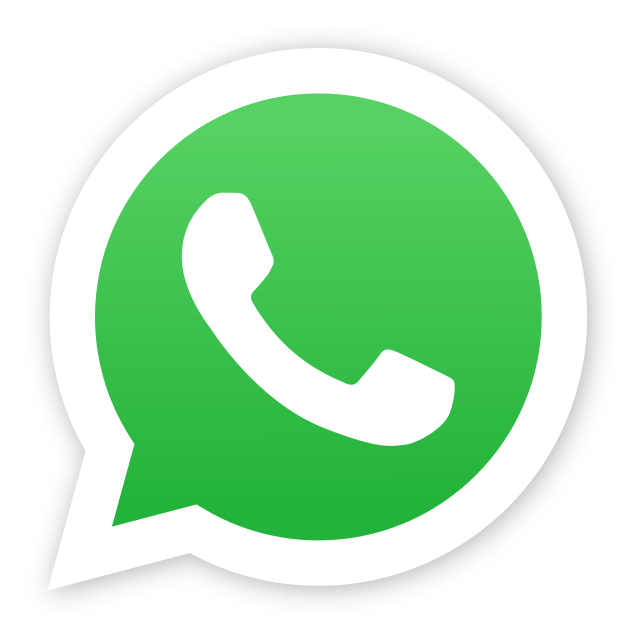Modern sales is quickly ditching physical phone systems in favor of smarter automated dialing solutions, including progressive dialer software. We’re glad you’re considering making this shift as well.
Now, there are many outbound progressive dialer options to choose from, but your final decision should ultimately depend on one thing: ROI.
“ROI” doesn’t just mean the product cost. We’re talking about what the progressive dialer software can do to improve conversions, productivity, collaboration, and the general calling experience for both reps and prospects.
Assuming you’ve got your team’s requirements mapped out, leading your decision with ROI will save you buyer’s remorse six months down the line (and an awkward meeting with your CFO).
Keeping ROI in mind, we’ve compiled a list of progressive dialers you should consider adding to your shortlist.
| FYI: When we use the term “progressive dialer,” we mean software that calls numbers one by one or “progressively.” Some of our industry peers call their multi-line or parallel dialers by the same name. That’s not what this article is referring to. |
Overview: best progressive dialer software
First, a refresher on how a “progressive dialer” works: this is automated software that makes calls one number at a time, in sequence. Once a call is done, the progressive dialer system automatically moves on to the next number.
Progressive dialers are typically used for calling qualified leads, i.e., prospects who’ve shown some purchase intent. Progressive dialer software can also be helpful for support teams, but the use cases are limited there.
Here’s our shortlist of some of the best progressive dialers you can get your hands on.
- JustCall: Affordable dialer with useful enablement features. Integrates with 100+ tools. Offers advanced AI features, including conversation intelligence and smart agent assist.
- Orum: Top-rated dialer with great AI capabilities. Has useful features for reps and managers. Gives a collaborative sales experience with a virtual sales floor. May be too expensive for small businesses.
- CloudTalk: Reasonably priced dialer with a wide range of voice and messaging features. Compatible with a host of tools. May struggle to maintain audio quality, and many users aren’t too happy with the UI. No AI features (yet).
- Kixie: Another top-rated dialer with a host of useful calling and messaging features. Has strong enablement capabilities, as well as conversation intelligence. May be a tad too expensive for small businesses.
- PhoneBurner: Powerful dialer with strong automation capabilities. Integrates with 100+ tools. But doesn’t offer any AI features and may be out of budget for many SMBs.
Why invest in a progressive dialer system?
Saving time and giving reps more calling hours is, by far, the biggest advantage of progressive dialer software.
In the typical salesperson’s work day, looking up contacts, manually typing a number, getting it wrong, retyping it, and finally making the call is at least 2-3 minutes wasted. That may not seem like a lot, but 2 minutes per 20-30 calls a day is 1 hour. It all adds up.
With a progressive dialer system, there’s no typing or copy-pasting numbers. There are no misdials. You don’t need to keep switching to your CRM tab to see contact info. The software takes care of everything.
Other benefits
Progressive dialers give reps more calling hours, but they also remove many obstacles that stop your teams from driving greater revenue per hour.
- Answer rates improve: Some of the more advanced progressive dialer software come with custom caller IDs and local presence dialing. These features give your calls more credibility and familiarity. Combine this with adjustable time zones, and you’re looking at much better answer rates across campaigns.
- Conversions go up: Progressive dialers don’t just scale up calling — they scale up meaningful conversations. Advanced features like on-screen scripts and AI prompts give reps more selling confidence, which means pitches land better and closing deals becomes easier.
- Reps burnout less: Sales teams have a lot on their plate (beyond calling) — sending follow-ups, updating the lead status after every call, jotting down and keeping track of notes, and scheduling callbacks, to name a few tasks. An advanced progressive dialer system can automate most of this, giving reps a breather in a hectic workday.
For modern outbound teams, getting a progressive dialer is just smart tech spend.
5 of the best progressive dialers to consider for your business
JustCall
JustCall calls its progressive dialer system the “Auto Dialer.” The dialer has excellent standard features like voicemail drop, custom sales scripts, local presence, team and campaign analytics, real-time call tracking, call recording and monitoring, and more.
Where JustCall really stands out is with respect to its advanced sales features, including AI-led automation, smart CRM integrations, conversation intelligence, and more.
Most useful features
- Versatile dialer: JustCall offers multiple dialing modes beyond its progressive dialer system (called the Auto Dialer). This includes intelligent predictive as well as dynamic dialing modes.
- Advanced AI features: Includes AI-generated prompts displayed on screen, automatic call transcription and summarization, automated call scoring, and
deep sentiment analysis for every conversation. - Omnichannel communication: Need to email or text prospects? JustCall lets you
do this (even on WhatsApp), along with the ability to automate bulk messaging. - Smart callbacks: On JustCall, reps can mark outcomes for every call, including callbacks. The software then automatically sequences callbacks based on the parameters of the call outcome, which means reps never miss out on hot leads.
- Integration features: JustCall integrates with 100+ tools, including a host of CRMs. This means you can set up calling or messaging workflows and generate reports natively on your CRM. You can also make calls and send messages from the CRM interface. Plus, importing contacts to JustCall takes only a few minutes.
What’s not so great about JustCall?
If you need video calling features in addition to the progressive dialer system, you don’t get that with JustCall. Some contact center software products do come with video features (none from this list), which can be a useful and effective sales feature.
What does JustCall cost?
JustCall has two price categories: the base plan and the AI plan. Dialer features are part of its “Pro” base plan and “Pro Plus” AI plan. You can choose monthly or annual billing, though annual billing is about 35% less expensive.
| JustCall Base Plans | ||||
| Essentials | Team | Pro* | Business | |
| Monthly billing per user | $29 | $39 | $69 | Customized |
| Annual billing per user | $19 | $29 | $49 | Customized |
| * This plan comes with the progressive dialer (called the Auto Dialer) | ||||
| JustCall AI Plans | |||
| Team Plus | Pro Plus* | Business Plus | |
| Monthly billing per user | $69 | $109 | Customized |
| Annual billing per user | $49 | $89 | Customized |
| * This plan comes with the progressive dialer (called the Auto Dialer) | |||
2. Orum
Orum refers to its progressive dialer software as the “Power Dialer,” and has everything you need in a standard progressive dialer. Orum also gives you more sales-relevant features, including caller ID reputation monitoring, dial tree navigation, voicemail drop, and a parallel dialing mode.
Most useful features
- Progressive dialer: Orum’s progressive dialer system is great for automating outbound calls. But what makes it even more powerful is its link with the platform’s advanced analytics, automation, and call oversight capabilities.
- Virtual sales floor: This is a collaborative sales environment with features that emulate the average contact center sales floor. Participants can get real-time performance updates for every rep on the team and can also host “blitz” calling campaigns with team members.
- AI capabilities: Orum’s AI-led call transcription, summarization, and conversation intelligence features can be very useful in saving reps and managers time and extracting conversation insights that translate into better pitches.
Shortcomings
Orum has a limited set of plug-and-play integrations. For software it’s not compatible with, Orum requires companies to build their own integrations. Integrating via Zapier is also not an option.
Additionally, Orum’s AI capabilities are useful but not extensive. For instance, the platform doesn’t have automated call scoring or smart agent assist features, which can be tremendous assets for modern sales teams.
What does Orum cost?
Orum hasn’t listed its pricing on its website. However, if user reviews are to be believed, Orum is one of the more expensive dialer solutions.
But it must be said that many users who do think it’s expensive feel it’s worth the cost. Orum offers a free trial for its product, so you can see for yourself if the software is worth it (though the trial is limited to North America).
3. CloudTalk
CloudTalk’s outbound progressive dialer is called the “Power Dialer” and is supported by a wide range of enablement and automation capabilities.
CloudTalk’s broader contact center features are also impressive, with many advanced features for both sales and support teams.
Most useful features
- Progressive dialer: Automated dialer that’s built for optimal sales productivity. The dialer integrates with mainstream CRMs and other tools, which means reps spend less time handling data and typing in lead details and focus on calling.
- “Smart dialer”: Click-to-call dialer system that automatically adds numbers from websites and CRMs to a calling list, with the added capability of managing the contact queue with simple drag-and-drop functionality.
- Call oversight: CloudTalk comes with call monitoring and whispering tools, as well as real-time analytics on calling activities. These features give sales managers clear operational visibility.
Shortcomings
Many CloudTalk users report audio quality issues with the software and also think the UI isn’t the easiest to use. There have also been issues with how CloudTalk integrates with tools, which could be disruptive to your operations.
What does CloudTalk cost?
CloudTalk’s progressive dialer software (called the “Power Dialer”) is available in the “Expert” plan, priced at $50 a month when billed annually.
| CloudTalk Pricing Plans | ||||
| Starter | Essential | Expert | Custom | |
| Monthly billing per user | $34 | $39 | $69 | Customized |
| Annual billing per user | $25 | $30 | $50 | Customized |
4. Kixie
Kixie’s progressive dialer software is called the “Power Dialer.” The top-rated dialer comes with a range of useful enablement and automation capabilities. The dialer also doubles up as a multi-line dialer, giving you and your team added calling flexibility.
Most useful features
- Progressive dialer: Kixie’s “Power Dialer” works like an outbound progressive dialer, with a host of enablement features, including voicemail drop, custom caller IDs, and local presence dialing.
- Click-to-call: With Kixie’s click-to-call feature, you can dial numbers directly from your CRM or even any web page, eliminating the need to switch to the dialer interface and typing in numbers to make calls.
- Multi-line dialer: For added selling flexibility, Kixie also offers a multi-line dialer, supported by automatic call distribution for optimal calling efficiency at any scale.
- Conversation intelligence: Kixie’s AI tool can quickly glean insights from conversations and provide detailed analytics around prospect sentiment and key phrases used.
Shortcomings
As a progressive dialer, Kixie is quite useful. But our biggest gripe is all the additional costs.
Kixie’s not the most affordable platform to begin with, so it can pinch when you have
to pay extra for useful features like local presence dialing and conversation intelligence.
Also, Kixie isn’t too versatile. For instance, it doesn’t have a dynamic dialing mode, which can be a boon when you’re targeting time-sensitive leads. No predictive dialing either, which can be a deal breaker if you run contact center ops.
What does Kixie cost?
Kixie’s single-line and multi-line “Power Dialer” comes as part of its “Premium” plan, which is priced at $95 a month per user. Billing is applicable on a quarterly basis.
| Kixie Pricing Plans* | |||
| Plan | Integrated | Professional | Premium |
| Monthly price per user, billed quarterly | $35 | $65 | $95 |
| * Source | |||
5. PhoneBurner
PhoneBurner calls its outbound progressive dialer the “Power Dialer.” It’s a top-rated dialer that promises 4x more calls (and customer stories to back it up).
The software also comes with strong analytics and reporting capabilities and integrates with a host of CRMs, collaboration, and data tools.
Shortcomings
PhoneBurner doesn’t offer any AI-led automation, let alone conversation intelligence. This means time-saving automation like call transcription and summarization or call scoring will have to be done manually.
We’re also not fans of its “unlimited dialing” claim, which isn’t accurate given that most internet service providers adhere to standard free-use policies and will limit your data usage as soon as you cross a particular threshold (meaning, no more calling).
Plus, some important features like live call monitoring and messaging come in more expensive plans. So if you’re getting the most affordable plan, you miss out on these.
What does PhoneBurner cost?
PhoneBurner’s Power Dialer comes as part of all its plans, with the most affordable one priced at $127 a month when billed annually.
| PhoneBurner Pricing Plans | |||
| Plan | Standard | Professional | Premium |
| Monthly billing per user | $149 | $179 | $199 |
| Annual billing per user | $127 | $152 | $169 |
Dialers are only as good as the reps who use them
From a revenue standpoint, adding progressive dialer software to your tech stack is the right business call. But its impact on your sales stats depends entirely on how well the tool is adopted and used.
It’s not unheard of for sales teams to stick to the dialing function and completely gloss over things like automated workflows for follow-ups, instant call transcription, smart lead prioritization, and many other useful features modern progressive dialers offer.
This is applicable to any software, but when you’re not extracting the most out of a tool, you’re leaving money on the table (literally in the case of dialers).
If this is the first time you’ll be introducing your team to an automated dialer, we highly recommend you chart out a training period so reps can get used to it. Ideally, when you take a free trial, involve the team in exploring the options you shortlist.
Beyond the training period, keep close tabs on improvement in output for each rep. Additionally, take feedback from your team to see how they’re using the progressive dialer software and what they’re still struggling with.












